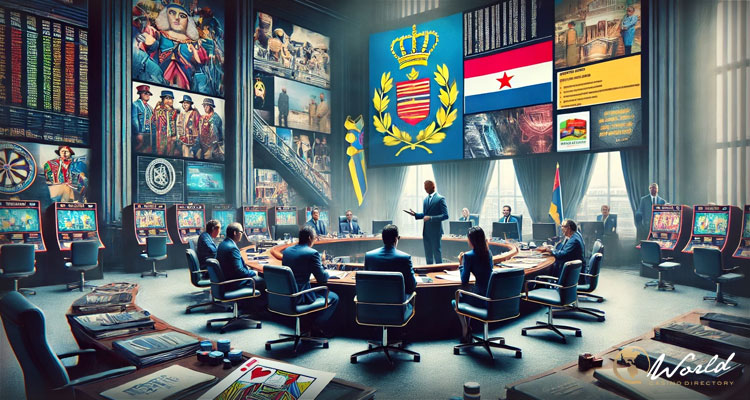The Gaming Control Board (GCB) of Curaçao has released an official statement addressing recent allegations about its gaming licensing practices, particularly regarding the contentious bankruptcy of operator BC.GAME. While the statement seeks to clarify key processes and counter allegations, it has left several pressing concerns unresolved, raising questions about the integrity and effectiveness of Curaçao’s regulatory framework.
Central to the controversy are claims that the GCB lacks proper authority to issue gaming licenses under the National Ordinance on Hazard Games (NOOGH). The GCB has firmly rejected these allegations, explaining that its licensing mandate was established in 2020 through a directive from Curaçao’s Minister of Finance and was subsequently amended in 2023. The organization maintains that licenses granted under NOOGH are full licenses rather than provisional permits, according to Asia Gaming Brief.
The statement also outlines how the anticipated National Ordinance for Games of Chance (LOK) will impact the regulatory landscape. Under the LOK framework, NOOGH-issued licenses will transition to provisional status, giving operators a one-year grace period to comply with updated regulations. This planned transition is presented as a step toward modernization, but it does little to quell concerns about the current state of oversight.
Licensing Process and Financial Management
To refute claims of corruption and mismanagement, the GCB highlighted its multi-phase licensing process. This process involves thorough due diligence, including background checks, financial evaluations, and business plan reviews, with transparency ensured through an online portal that allows applicants to monitor progress.
Addressing financial concerns, the GCB stated that all licensing fees are deposited into an official government account. It emphasized that approvals are contingent upon receipt of these payments, leaving “no scope for mismanagement” and countering accusations of embezzlement.
Addressing Player Disputes
The GCB’s statement included assurances about enhanced player protections under the forthcoming LOK framework. A key feature will be the mandatory introduction of Alternative Dispute Resolution (ADR) mechanisms to independently handle complaints. While this development is promising, it does not address the immediate grievances of players impacted by ongoing disputes, including those related to BC.GAME.
The BC.GAME bankruptcy has been a focal point of the criticism surrounding Curaçao’s regulatory practices. The GCB described the bankruptcy as administrative rather than insolvency-related, stemming from disputes over player payments. A trustee has been appointed to oversee the matter, but the GCB cited confidentiality obligations as a reason for withholding further details. This lack of transparency has fueled speculation about broader regulatory failures and potential systemic issues.
Critics Call for Greater Accountability
Despite the GCB’s efforts to outline its processes and refute allegations, critics argue that the response lacks substantive engagement with deeper concerns. The statement focuses heavily on procedural details without directly addressing accusations of corruption, foreign interference, and regulatory inadequacies.
Investigative reports have also raised doubts about the GCB’s effectiveness in preventing misuse of Curaçao’s licensing system. Allegations include the operation of unregulated markets and questionable financial practices, both of which have tarnished the island’s reputation as a gaming jurisdiction.



